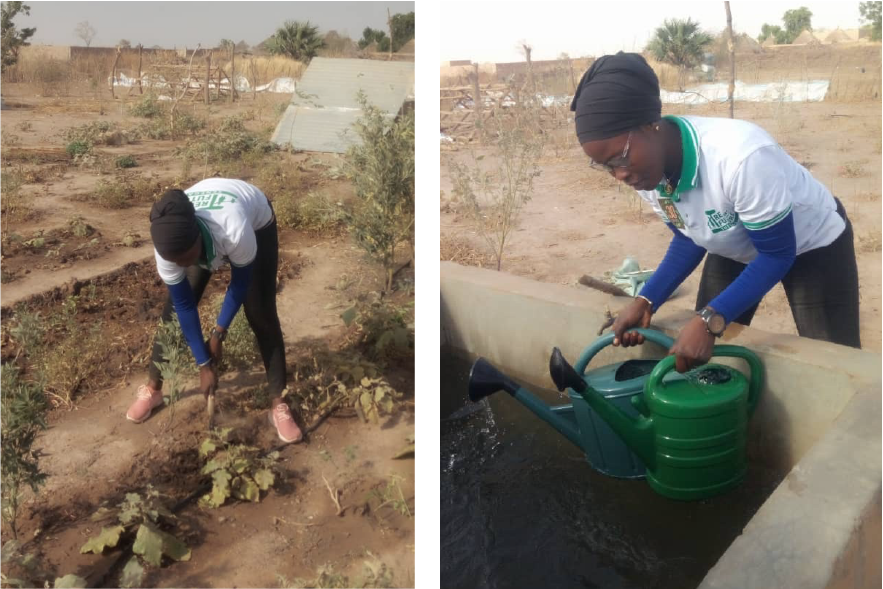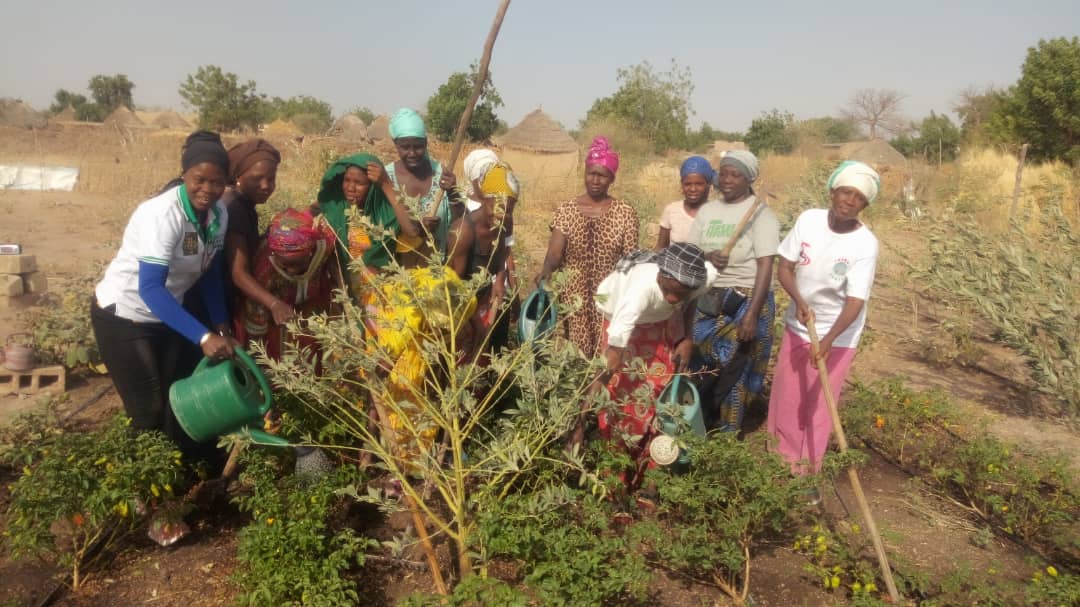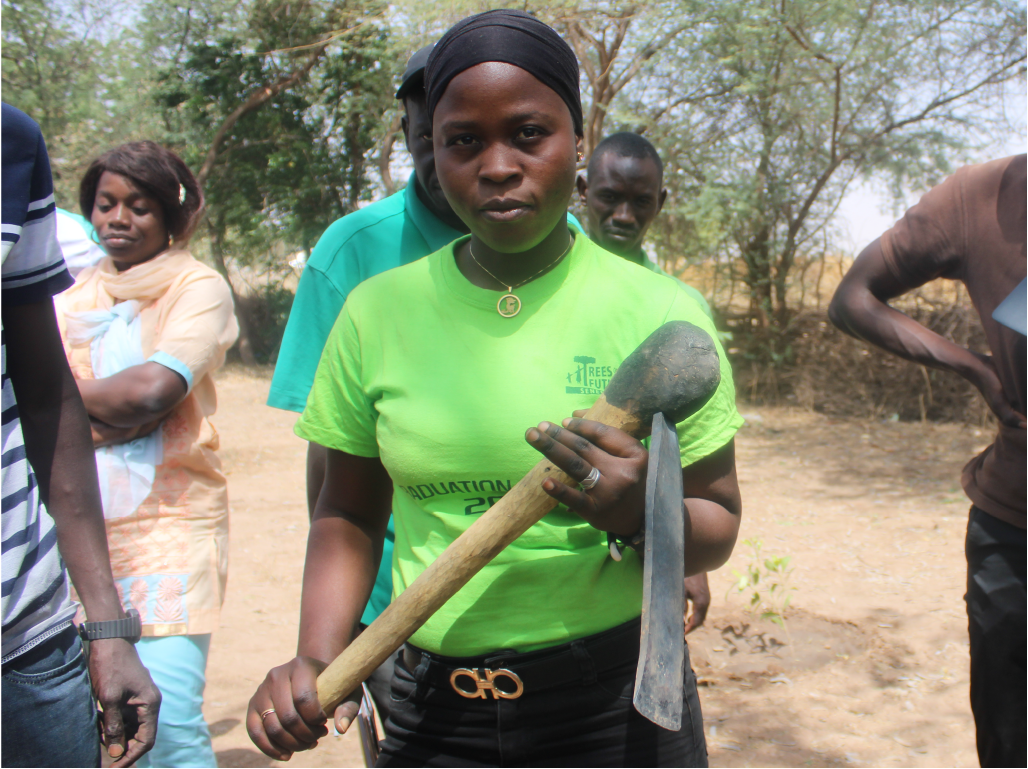Meet Sira, an Emerging Leader in Agriculture & Equality
It’s mid afternoon in the village of Boulel, in Kaffrine, Senegal and Sira Bakhayokho is nowhere to be found.
“You’ll find her in the fields,” an older woman suggests.
Surrounded by a dozen women, Sira’s expressive face and bright green Trees for the Future (TREES) t-shirt stand out. Sira is teaching the women about regenerative farming and something called the Forest Garden Approach.
Sira is a Trees for the Future Training Technician, her job is to teach smallholder farmers how to establish and maintain Forest Gardens. Right now, she’s working with the women of Boulel, explaining how the Forest Garden Approach can successfully protect land while providing regular food and income.
“When I was 19-years-old, I was at university, earning a law degree,” she says. “But one day I met TREES staff and Executive Director John Leary – and the team was showing my community a new way to farm. This path offered to my homeland really motivated me.”

Excelling at Trees for the Future
Sira joined the TREES team in 2018, working in the finance training arm of the program. She would regularly meet with program farmers to teach them about credit and savings.
Showing dedication and commitment to the program and mission, Sira was soon managing TREES’ Loxo Loxo project, a water access program in Kaffrine, Senegal. The initial goal for the program was to connect 200 farming families to a central water supply in one month. Sira met that goal in just two weeks, and with her help, the team has since installed more than 1,700 water spigots on farmers’ land.
In 2019, Sira joined the Kaffrine 9 project team as a Training Technician. She now works with 280 women across six Boulel villages, supervising every step of the training process, from year one to year four.
“This project started 6 months ago and it is already bearing fruit. The first harvest was fantastic, the women harvested chilli; eggplant, tomato salad,” Sira says.
“Sira amazes us every day, She is so motivated and always able to help us complete an activity,” says Forest Garden Farmer Awa.
“We were able to access running water thanks to our earnings from market gardening,” says Sokhna, another program participant. She says her harvests have earned her 50,000 fcfa (about $84 USD) a day at market.
Sira’s face shines even brighter as Sokhna shares her success story. “It’s very rewarding to be able to say that I, as a technician, have contributed to the economic and social development of six villages in my country. Regenerative agriculture remains the future of Africa. These trees provide incredible life for these people. This year almost a dozen women told me that they were able to enroll their children in school thanks to their Forest Gardens.”

Setting an Example for Women
Sira trains 280 female farmers in the Trees for the Future program, but she herself is also a promising female figure in Senegalese agriculture – she is the only female technician on the Senegal team.
“As a woman in a patriarchal society, the challenge is daily and permanent. But still, I want to give the maximum to give the courage to other women to come and work in agroforestry,” she says. “The work is hard, of course, but you have to believe in yourself.”

Her family was initially reluctant about her following a career in agriculture because of the physical work it requires and she had reservations about how people would treat her.
“When I joined this team, I expected my colleagues to underestimate me or to not recognize my skills. Quite the contrary, the team at TREES Senegal is immeasurably supportive, especially in certain villages where seeing a woman driving a motorcycle and supervising work may seem strange. Being the only woman makes me proud because it is in my work that I can show other women of my generation that they can do anything,” she says.
“It was weird for us to see a woman riding a motorbike,” admits Awa. “Now we are used to it. She gives so much that, we too, do our best to make the harvest a wonderful one.”
Sira and Forest Garden Farmers like Awa work closely for the duration of the four-year program, at which point the farmers graduate with the skills they need to excel and Sira and other TREES staff take on a new group of farmers and a whole new set of challenges.
Challenges that Sira says she’s ready for. “I suppose that nothing is easy in life and that every day human beings have to fight to improve their society.”
